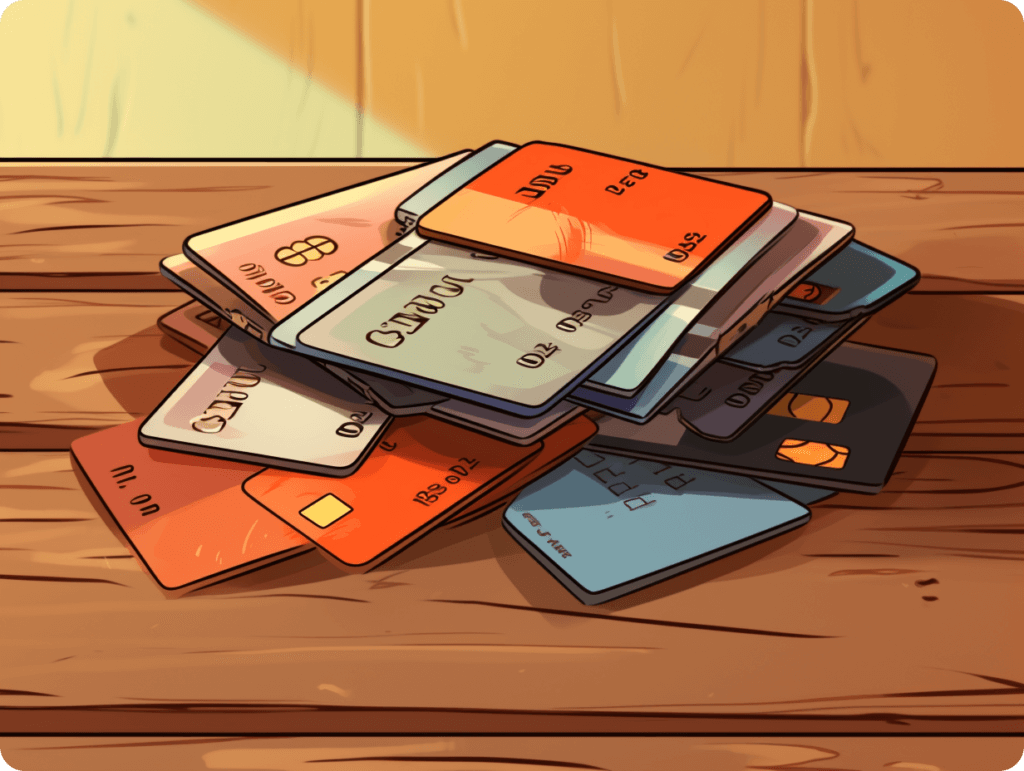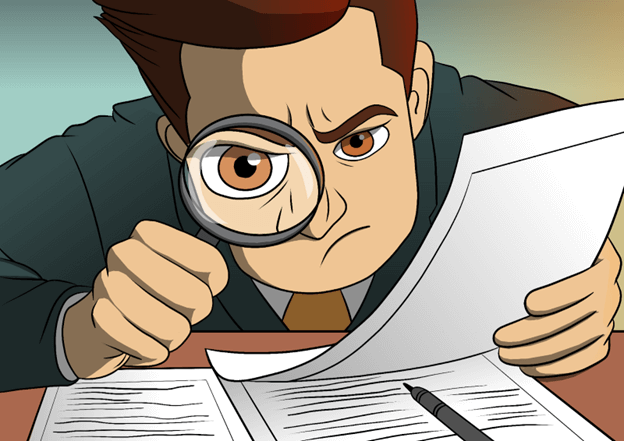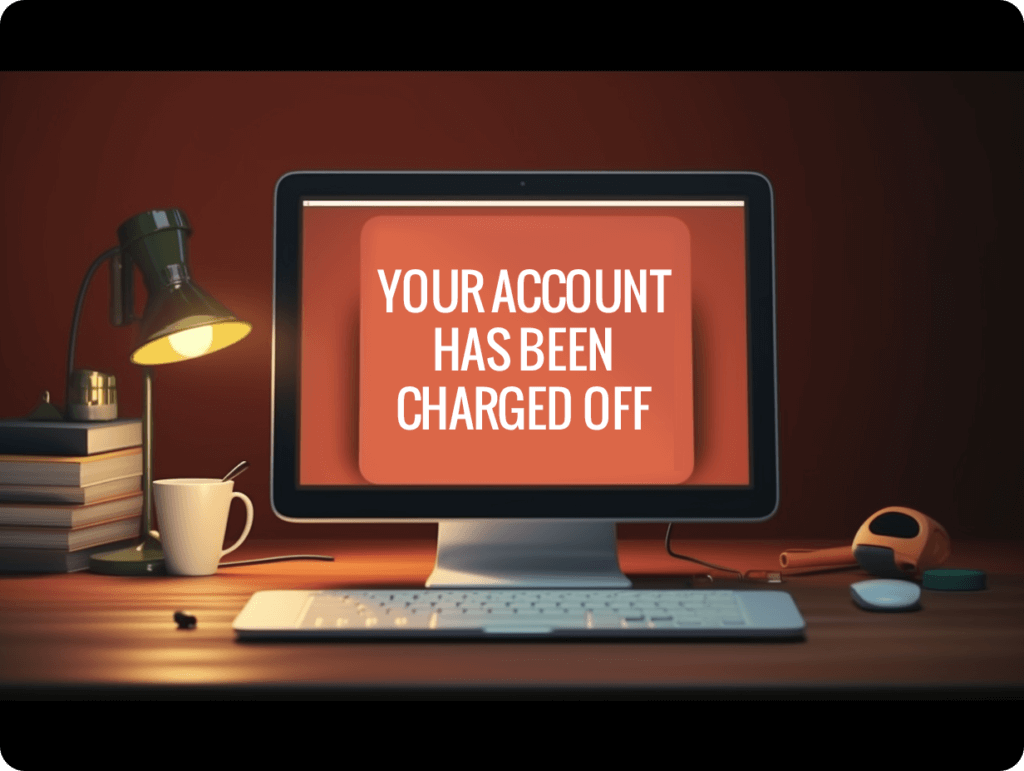- Blogs
- /
- 4 Top Tips on How to Remove Closed Accounts From Credit Reports
4 Top Tips on How to Remove Closed Accounts From Credit Reports

Summary
A 2021 Consumer Reports credit checkup report showed that 34% of people found errors on their credit reports. One typical error folks struggle with is closed accounts lingering way longer than they should on credit reports.
What makes this troubling is that, in some cases, these outdated entries could negatively hurt your credit score and financial opportunities. The solution to this challenge is to eliminate them from your credit report.
In this article, we’ll explore the truths about closed accounts and the secret of how to remove closed accounts from credit reports for good.
We’ll walk you through the step-by-step process of disputing and removing these obsolete records so you can take control of your financial reputation.
Let’s explore!
Key Takeaways
- A closed account is any credit account closed by the creditor or the account holder.
- Having closed accounts on your credit report isn’t always a bad thing.
- Accounts closed in good standing actually benefit your credit score.
- Disputing inaccurate accounts and sending a goodwill or pay-to-delete letter can help remove closed accounts from your credit report.
- Closed accounts with positive payment history can stay on your credit report for ten years, while those with negative payment history remain for seven years.
- Credit repair and counseling agencies are excellent resources for handling closed accounts on your credit report.
How to Remove Closed Accounts From Credit Report

To remove closed accounts from your credit report, you first need to identify any errors associated with these accounts. Carefully review your credit report to spot any inaccuracies or discrepancies in the information provided for closed accounts.
Pay attention to every detail, including your personal information, account balances, payment history, and closure dates.
Look out for unauthorized transactions or accounts that don’t belong to you because they could result from identity theft or fraudulent activity.
By identifying errors on your credit report related to closed accounts, you can take the necessary steps to dispute and remove them from your report.
Now that you have a solid idea of identifying errors on your credit report let’s discover how to remove closed accounts from credit reports.
1. Dispute Inaccurate Accounts
Once you’ve found a closed account that was documented incorrectly, you have the right to get it off your credit report, as they don’t accurately represent your responsibility with credit.
To do that, you can file a dispute with the three major credit bureaus by mail or online. If you’re going by mail, your dispute letter should be well-crafted and formal. Ensure it includes every necessary detail on the delinquent account.
Also, address the letter to the credit bureau reporting the inaccurate information about the closed account.
Before sending your dispute, verify that you clearly stated why you’re disputing the closed account. Include any supporting documentation that proves your claim of inaccuracy regarding the account in question.
This could be anything from billing statements showing payments made, letters from creditors confirming the closure of an account, or any other proof that supports your claim against the inaccuracies reported in these closed accounts.
One more thing. Be sure to follow the proper format of the credit bureaus’ guidelines.
Here’s a quick structure for an effective dispute letter:
- Your personal information (name, address, driver’s license number, social security number)
- Credit bureau information
- The specific account information you are disputing
- A clear explanation of why you believe this information is inaccurate
- Any supporting documents or evidence
Reviewing Dispute Results
Once you’ve filed a dispute regarding inaccuracies related to closed accounts, it’s essential to stay updated on its progress and outcome. The credit bureaus are legally mandated to investigate and respond to disputes within 30 days.
So, regularly checking for updates on the status of your disputed closed accounts will keep you informed about any changes made by the credit bureaus based on your submitted evidence and arguments against inaccuracies reported in these closed accounts sections of your report.
2. Request a Goodwill Deletion
This strategy involves sending a goodwill letter to your creditors or credit bureaus asking them to take off a closed account from your credit report as a show of goodwill.
You must know that the creditor, in this case, has the right to refuse your request, as they are not required to remove the closed account. But you may find some luck with someone sympathetic to your request.
When writing your goodwill letter, it’s vital to highlight any circumstances that led to the closure of the account. For instance, if medical issues or unexpected job losses resulted in missed payments, which led to account closure, providing these details can humanize your situation.
Clearly state that you are seeking goodwill from the creditor by removing the closed account from your credit report, and express gratitude for their consideration of your request.
Remain polite and respectful and maintain a positive tone throughout all communications with creditors. How you phrase your words matters. The last thing you want is to look like an entitled debtor.
Don’t forget to add any documentation, like proof of a positive payment history or letters of recommendation.
Doing this can help support your case since those documents show responsible financial behavior and emphasize why removing the closed accounts would be beneficial.
3. Pay-for-Delete Negotiations
Unlike the goodwill letter, a pay-for-delete letter is a written request to a creditor where you offer to pay the outstanding debt on a closed account in exchange for its removal from your credit report.
But, like sending a goodwill letter, creditors are not required to accept a pay-for-delete request, and they may even try to take your money without removing the negative marks as promised.
That’s why getting written confirmation is super critical if the creditor accepts your pay-for-delete request. Do this before making any payments to the creditors. The last thing you want is to spend so much money without getting your desired results.
4. Waiting for the Closed Accounts to Expire
Closed accounts don’t stay on your credit report forever. Typically, they only last for about seven to ten years. However, the older the accounts get, the less impact they’ll have on your overall credit score.
Positive closed accounts stay on your record longer than negative ones. It may remain there for up to ten years after the account is closed. According to Experian, it extends the duration of positive accounts on a credit report to reward folks for their responsible payment practices.
Closed accounts in good standing get taken off your credit report in ten years, whereas negative closed accounts fall off in seven years. You can dispute closed accounts that stay on your credit report longer than expected.
The Truth About Closed Accounts
Closed accounts on credit reports are credit accounts that have been closed by either the creditor or the account holder. These accounts were previously operational and used for credit transactions but are no longer active.
Closed accounts, like closed credit card accounts, can impact your credit score. However, the nature of this impact depends on factors like the account’s payment history, when it was opened, and how long it’s been closed (the age of the closed account).
You must understand that not all closed accounts are bad for your credit score. Let’s say you recently closed an account with a positive payment history that has been open for many years. In this case, that closed account could contribute positively to your credit score.
Understanding how closed accounts affect your credit score is crucial when managing and improving your financial health.
Note that while some closed accounts may still positively impact your credit score, others with negative payment histories or high outstanding balances might be dragging down your score.
Your key goal should be to remove these negative closed accounts from your credit report while keeping the positive ones on it for as long as possible.
How to Handle Negative Items and Identity Theft

You must take quick action in any case where identity theft leads to the closure of your accounts.
Once you suspect fraudulent activity, report it immediately to the credit bureaus and law enforcement agencies. This can help prevent further damage and aid in resolving any associated issues.
When addressing identity theft issues related to closed accounts on your credit report, follow the proper procedures for resolution recommended by authorities, like filing a complaint with the Federal Trade Commission (FTC) through their official website or contacting local law enforcement agencies if necessary.
Also, ensure you place fraud alerts on your credit reports with all three major credit bureaus—Equifax, Experian, and TransUnion—which adds an extra layer of security against potential future fraudulent activities using your personal information.
Removing Closed Accounts: Credit Repair vs. Counseling Agencies
Should You Use a Credit Repair Service?
Hiring a reputable credit repair service is excellent if you find removing closed accounts from your credit report challenging.
Research different credit repair companies and choose one with solid customer testimonials and a proven track record of successfully removing negative items from credit reports.
However, be cautious when selecting a credit repair company to avoid scams. Ensure the company is legitimate before seeking its services.
A reliable credit repair service can help guide you through disputing closed accounts on your credit report. And this can help you get an excellent credit score fast.
Should You Get Credit Counseling?
Another option for managing closed accounts on your credit report is to explore credit counseling services. These agencies provide valuable guidance on debt management.
Plus, they can help you negotiate with creditors to resolve outstanding debts related to closed accounts.
When considering credit counseling, choose reputable agencies with experience helping folks navigate the complexities of dealing with closed accounts and other harmful items on their credit reports.
Pick a credit counseling agency that offers personalized advice and strategies for addressing your credit issues while providing support as you work towards financial stability.
Avoid These Negative Credit Repair Strategies
It’s crucial to stay cautious of any misleading or incorrect advice. Some sources may provide information that could harm your credit or lead to legal issues. So always consult trusted sources, like financial professionals or reputable websites, for accurate guidance on managing your credit history.
Be cautious about following any advice that suggests questionable tactics for removing closed accounts from your credit report.
Avoid any agency that proposes illegal methods like identity theft or falsely disputing accurate information in your report. These actions can severely damage your credit and even result in legal consequences.
Certain credit repair services or counseling agencies might offer solutions that promise quick fixes but are actually detrimental in the long run.
It’s essential to thoroughly research and verify the credibility of any organization before getting their help addressing closed accounts on your credit report.
Six Vital Strategies for Building Your Credit Score

1. Leave Good-Standing Accounts Open
Leaving good-standing accounts open can positively impact your credit history. Even closed accounts with a positive payment history can contribute to maintaining a positive credit score.
Keeping good-standing accounts open is a strategy that can help maintain or improve your credit score. Closing an account in good standing may affect your available credit and overall credit history. This could hurt your credit score.
2. Regularly Monitoring Credit Score
Developing the habit of regularly monitoring your credit score is an essential strategy for staying informed about changes that may affect it.
Regular monitoring helps identify newly closed accounts or inaccuracies that require attention, allowing you to take the necessary steps promptly.
3. Always Pay Bills on Time
Paying your bills on time is the best way to improve your payment history and credit score. Your payment history contributes 35% and 40% of your FICO and Vantage credit scores.
On the other hand, making late payments can damage your credit score and reflect poorly on your payment history.
4. Pay Down Debt
Ensure you pay off every debt you owe. Focus on paying off high-interest loans, as this would reduce your overall interest burden. Prioritize debts with higher interest rates to expedite the reduction process and minimize long-term financial costs.
By diligently settling each outstanding debt, you enhance your creditworthiness and pave the way for a more secure and debt-free financial future.
5. Reduce the Number of Hard Inquiries You Take on
Hard inquiries happen when you apply for a loan and a creditor checks your credit report to decide to approve you for a loan.
The negative impact of hard inquiries on your credit score is usually minimal, but having more than six hard inquiries within a short period can considerably affect your credit report.
6. Create a Budget
Budgeting is a smart way to limit your credit card spending and lower your utilization ratio. A high credit utilization may make repaying debt harder and leave you without a cushion in an emergency.
Closing Thoughts
Now that you’ve discovered how to remove closed accounts from credit reports, from understanding how closed accounts affect your credit to disputing inaccuracies and exploring goodwill letters or pay-for-delete negotiations, you have the tools to take action.
Improving your credit takes time, so don’t get discouraged if you don’t see immediate results. Keep implementing the strategies you’ve discovered, stay informed about your credit status, and make responsible financial decisions.
Also, if it proves too challenging, don’t hesitate to get help from reputable credit repair services or counseling agencies. With the right approach, you can work towards a healthier financial future.
FAQs
How do closed accounts affect my credit report?
Closed accounts can still impact your credit report, particularly if they have negative information associated with them.
Although closed positive accounts may continue to reflect positively on your credit history for ten years, closed negative accounts could lower your score.
Can I remove closed accounts from my credit report?
It’s challenging to remove accurate closed accounts from your credit report. However, you can dispute any inaccuracies with the credit bureaus or try goodwill letters and pay-for-delete negotiations with the creditors.
What are goodwill letters for account removal?
Goodwill letters are written requests to creditors asking them to remove the negative closed account from your credit report as a goodwill gesture. These letters appeal to the creditor’s empathy and understanding of your situation.
Are there detrimental strategies I should avoid when repairing my credit?
Yes, some strategies, like applying for new lines of credit excessively or closing old accounts, can be detrimental.
Ensure you focus on responsible financial habits and get guidance only from reputable credit repair services or counseling agencies.
How can I improve my overall credit moving forward?
To improve your overall credit, focus on making timely payments, keeping balances low relative to available credits, avoiding unnecessary hard inquiries, and regularly monitoring your reports for accuracy and potential fraud.
Our Latest Blogs:

ThisIsJohnWilliams
FREE Strategy Session to Fix Your Credit Blogs / In today’s digitally interconnected world, we all face the danger...

ThisIsJohnWilliams

ThisIsJohnWilliams
FREE Strategy Session to Fix Your Credit Blogs / Facebook Twitter Linkedin Instagram Share Summary How to recover from...

ThisIsJohnWilliams

ThisIsJohnWilliams






